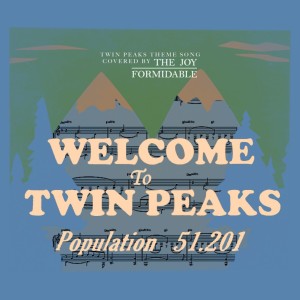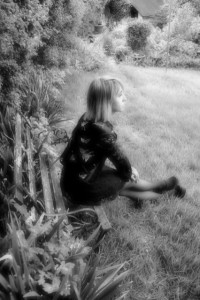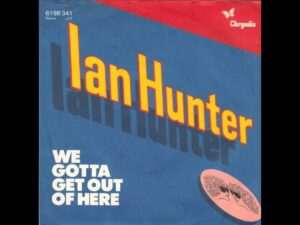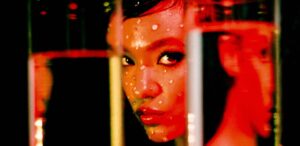I’m not typically a huge fan of covers, especially if the original song was a classic already. I will make exceptions, though. The Sundays’s brilliant cover of Wild Horses is perhaps even better than the Stone’s original, but for the most part, this is a rare occurrence.
Then again, when I heard about the subject of this cover, I immediately leapt up and started shouting. The Joy Formidable covering Badalamenti/Lynch/Cruise’s original Falling and the theme to Twin Peaks? I couldn’t wait.
Firstly, Badalamenti’s composition is easily one of the most haunting and recognisable programme themes in history. I’ve heard other band’s attempts to cover the Twin Peaks catalogue, but few have come anywhere close to the emotional impact of the original. Badalamenti’s dark and quirky soundtrack did more than set a tone for the show — it was an essential element to the story and essentially an un-credited character. Thematic compositions swelled and faded as they followed the major characters throughout the programme and served as presage to events. It was that good. As for the theme song, Falling first appeared on Julee Cruise’s 1989 classic Floating Into The Night album.
I probably should have prefaced this review by stating that Floating Into The Night and the Twin Peaks soundtrack got be through a period in my music life when rock had been overrun by a decidedly over-grunged Seattle sounds and the Madchester scene from the UK. Yes, I owned albums by Nirvana, The Stone Roses, Charlatans, and I even liked Paris Angels, but I soon grew weary of it all and retreated into listening to instrumental 50s exotica, cocktail and Afro-Cuban bands.
And then there was Julee Cruise and within a few short years of David Lynch’s Blue Velvet, there was Twin Peaks. And there was the beautiful Lynch-inspired music of Angelo Badalamenti and I found a deep satisfaction in it all. From 1989 throughout most of the 90s, the Floating Into The Night and Twin Peaks albums rarely left my stereo. They were on permanent rotation. Badalamenti captured a moment in time and slowed it down so that the passage of time outside this was barely perceptible. Half of the music gives a dreamy gentle nod to the roadhouse and sock hop era. The other half is a dark cinematic exploration into mystery and supernatural suspense. Angelo’s and Lynch’s resulting creation was brilliantly haunting and singular.
I can understand modern artists are looking back at these albums with great love, but how do you adequately cover this body of work with any sense of authenticity? How do you replace Julee Cruise’s angelic voice? How do you do justice to Lynch’s spooky lyrics. The answer is ‘faithfully’ as I know Ritzy has a deep appreciation for David Lynch’s universe and Badalamenti’s body of work.
I’d likely say that even without listening. But what happened when I did finally hear it was another reaction entirely. It wasn’t the vocal version I’d expected but the instrumental. Ritz, Rhydian, and Matt don’t just recreate the theme note for note, their sonic interpretation lifts you up and transports you to the very first time you ever heard this song.
An echoing reverbed guitar and piano takes us up and into the song. Ritz’s wordless vocal parallels the melody with the guitar and we’re off with the winds gusting through the Douglas Firs. The arrangement here is simply huge and scary, with the textures rollin atop one another to delightfully and faithfully capture the sense of the cinematic. Matt’s touches are gentle but deliberate—his cymbal crashes are lovely. Then Ritz drops a frighteningly brilliant bit of fuzzed out slide guitar work as the song crescendos. Suddenly, I’m right there in Twin Peaks and the owls are flying. At the end, Rhydian rattles on the signature bass line like he wrote it.
I’ll stop my review here and just say that it’s very rarely possible to surpass an original song with a cover, especially from a composer such as this one. But this version just came damn close. And with any luck, we’ll be drinking black coffee with doughnuts and hearing this version somewhere along with the Showtime reboot of Twin Peaks. This is magic.
‘Through the darkness of futures past,
The magician longs to see.
Once chants out between two worlds,
Fire, walk with me.’





